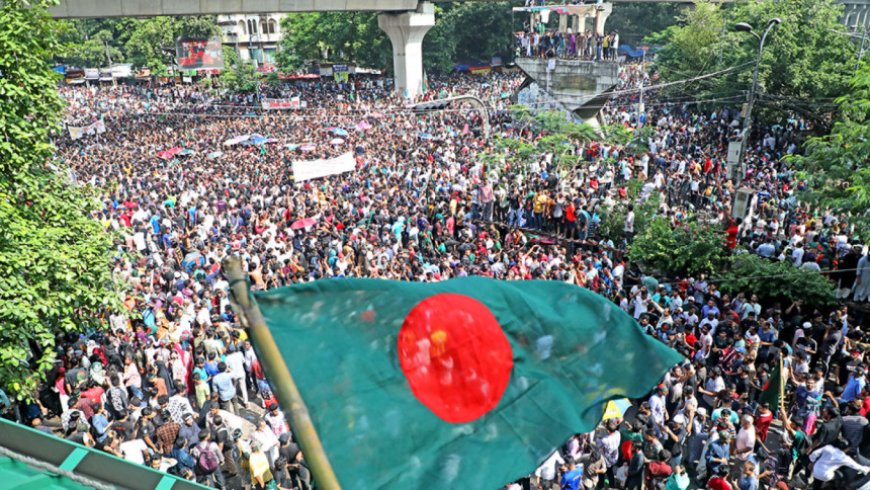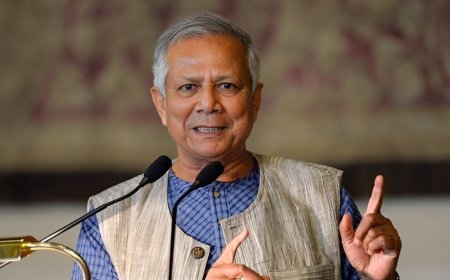July Uprising: Hopes Shattered by Unemployment
July Uprising: Hopes Shattered by Unemployment

Bangladeshi students risked their lives to challenge an autocratic regime, but six months after the uprising, many are finding that securing a job is proving to be more difficult than fighting in the streets. Dhaka University student Mohammad Rizwan Chowdhury, once hopeful about opportunities for youth, now feels disillusioned, saying he has seen little action from the caretaker government led by Nobel Peace Prize laureate Muhammad Yunus. "I can't see any meaningful steps taken by the government so far," said the 25-year-old student, who participated in the protests that forced autocratic leader Sheikh Hasina into exile on August 5.
Unemployment, a major catalyst for the protests last year, has only worsened since. By the end of September 2024, the number of job seekers in the country of 170 million had risen to 2.66 million, a 6 percent increase from the previous year, according to the Bangladesh Bureau of Statistics (BBS). Among those unemployed, 87 percent are educated, the BBS reports.
The International Monetary Fund cautioned in September that economic activity had "slowed significantly, while inflation remained in double digits," with tax revenues down and increasing pressures on public spending. For many, the initial euphoria following Hasina's ouster is fading.
"Although we have representatives in the administration, I'm not sure if our voices are being heard," said Rizwan, a political science graduate.
Independent analyst Zahid Hussain, a former lead economist at the World Bank in Dhaka, stated that about one-third of the labor force is "underemployed, taking whatever jobs they can just to make ends meet."
Since Bangladesh's independence in 1971, its economy has thrived, especially driven by the textile industry, making it the second-largest garment exporter in the world. However, jobs outside the garment sector for university graduates remain scarce.
The government claims it is taking steps to address the issue. Shafiqul Alam, Yunus' press secretary, said improving tax revenue would allow the government to invest in the public sector and generate a "huge" number of jobs. "Ensuring better revenue collection is a priority, as the previous government left behind a broken economy," Alam explained.
But Yunus, at 84 years old, is also grappling with what he calls the "extremely tough" task of restoring democratic institutions ahead of elections set for later this year or early 2026. "The interim government is preoccupied with managing the mess they inherited," said Zahid Hussain. "The administration isn't moving at full speed," he added. "I'd rate them 50 out of 100."
The challenges are formidable. "The public sector can only hire 20,000 to 25,000 graduates annually, while around 700,000 graduate each year," said AKM Fahim Mashroor, head of the popular job site Bdjobs.
The private sector, which provides around 85 percent of jobs, has shown little improvement either. "Both the public and private sectors have been slow in hiring since August 5," Mashroor said.
The political unrest has also caused unease among investors. Bangladesh's central bank reports that foreign investment between July and November 2024 was just $177 million—less than a third of the $614 million secured under Hasina's rule during the same period the previous year.
Taskeen Ahmed, president of the Dhaka Chamber of Commerce and Industry, urged the government to implement programs supporting young job seekers, including "loan schemes for youth to start businesses."
However, some, like 31-year-old finance graduate Subir Roy, feel it may already be too late for them. "My father sold a small piece of land to send me to university... now I'm going home empty-handed," Roy said. "I'll join my father in the paddy field."
What's Your Reaction?





















































































